
Community Studies:
Ecostery as Intentional CommunityOfficial Syllabus download link:
SS402u: Community Studies: Ecostery as Intentional CommunityCountering the global marketplace, toxic culture, consumer society, and increasing destruction of nature will require a paradigm shift in our concept of community. In this course we explore how intentional community can serve as an experiential and educational setting for an Ecostery, where connection with nature, defense of biodiversity, and making ethical choices create a lifeway in harmony with nature.
The Ecostery Foundation of North America (TEFNA) defines Ecostery as "a place, a center, a facility, stewarded land, and Nature sanctuary where ecosophy (ecological wisdom and harmony) is learned, practiced, and taught."
Intentional community is a lifeway paradigm currently experiencing a resurgence as people sensitive to the global ecology crisis search for less consumptive ways to live. Ecostery is where intentional community becomes an educational center for exploring ecologically sensitive lifeways. Hands-on work on community projects, participation in community process, and interaction with community members supplement discussions based on the text and other readings. The natural beauty of the Dakubetede Wilderness Campus and surrounding wilderness provide inspiration to complement the academic and experiential portions of this course.
Once a week the Ecosterians will host the rest of Trillium Community for dinner and an evening discussion of the text and other readings. Weekly Ecostery councils will provide opportunities for participants to work on issues and to set a theme for each week.
The core of your coursework will be the journal you keep of your daily experiences living in the Ecostery and within the larger Trillium Community. This journal will focus on the processes of community: communication, organization, personal insights, ideas and inspirations. Journal entries should occur on a near daily basis. Ecostery faculty will read and evaluate your journals several times during the session.
During the last week of the Ecostery, you will write a 5-7 page personal paper summarizing your residential Ecostery experiences with a focus on improving future sessions.
About D.E.E.P. Application "Community Through Education" Contact
Curriculum Dakubetede Wilderness Campus Ecostery Thanks & Praises Photo Album